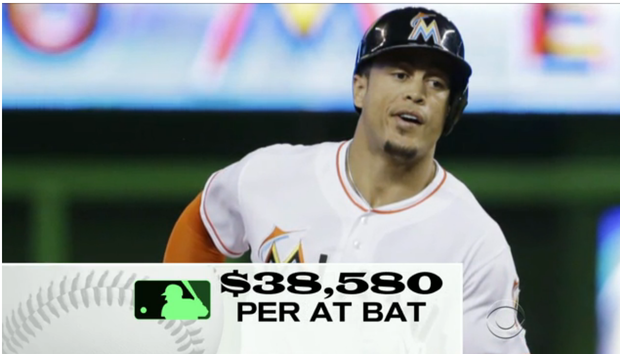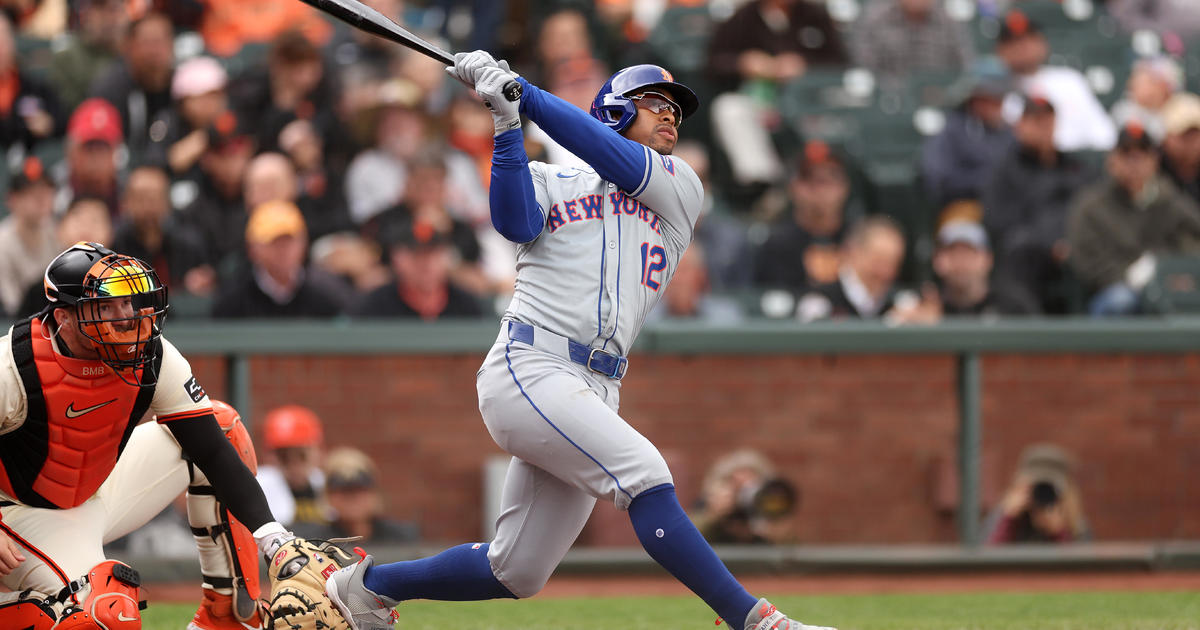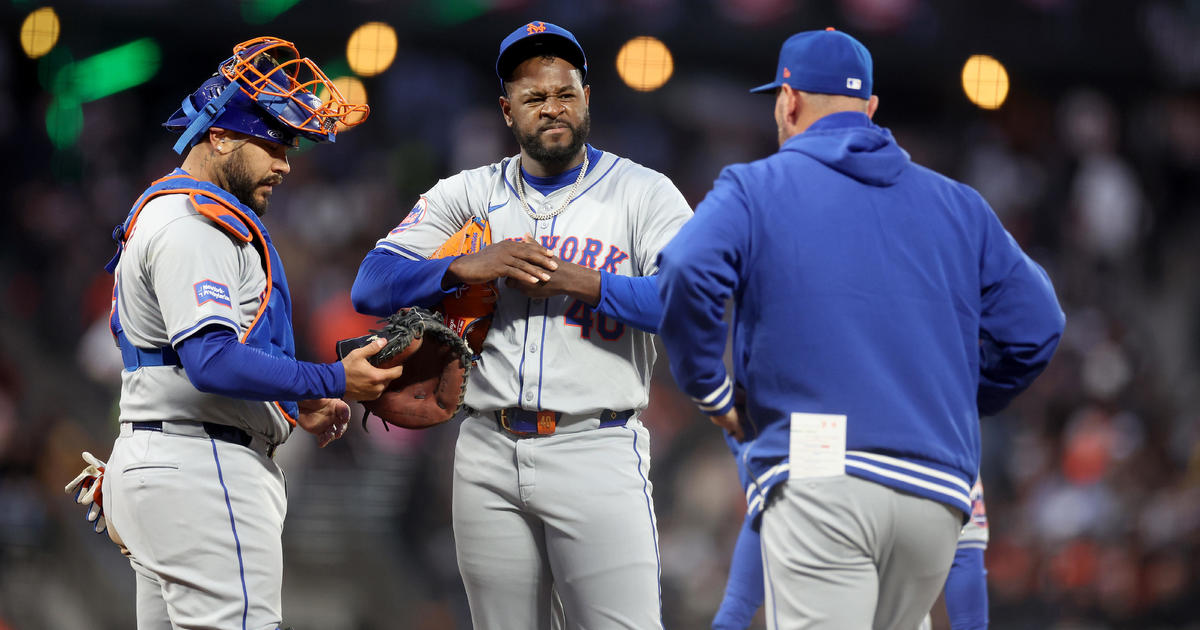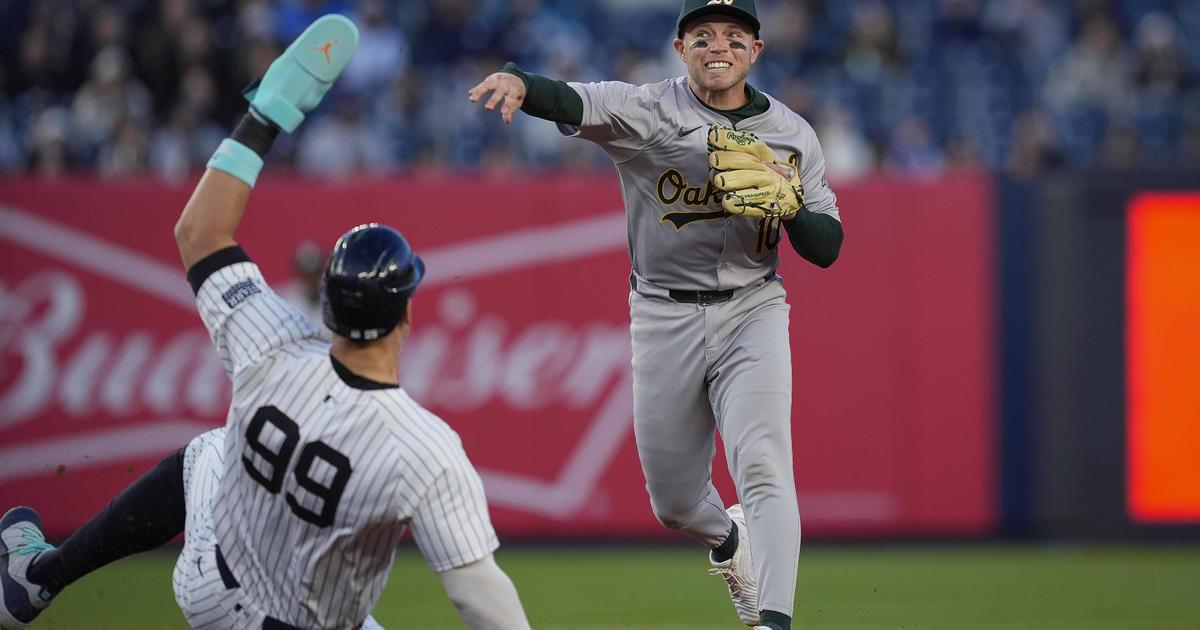Jared Max: Great Expectations — A Dickens Of A Task For Giancarlo Stanton
By Jared Max
» More Columns
This baseball contract that everyone and their mother is talking about is like a joke that begins, "This is the funniest thing you'll ever hear." Expectations are so great that before the subject steps to the plate, he's behind by seven or eight runs. Chances are minimal that his story can live up to its billing.
Midway through Monday's CBS Evening News, anchor Scott Pelley asked, "Who just landed the biggest deal ever in American sports? We'll have the answer ahead."
While many had already learned the details of the deal reported by CBS Sports' Jon Heyman, non-sports fans watching the Evening News must have wondered, "Who got all this money? LeBron James?"
Shortly after commercial break, Pelley announced, "The biggest American sports contract in history was settled today between the Miami Marlins and slugger Giancarlo Stanton. Thirteen years and $325 million -- 325!"
Pelley broke down the numbers, stating that Stanton will earn $154,321 per game and $38,500 per at bat — if he plays every game. Obviously, Stanton will not become Cal Ripken, and these per-game figures will increase.
"Most of us -- kids and adults alike -- have no way to even comprehend this kind of money simply because it's so huge," expressed sports psychologist Rick Wolff.
Is a contract like this unhealthy?
Forget about the Marlins or their fan base (only 57 percent of seating capacity was filled at Marlins Park in 2014, ranking 24th of out 30 MLB teams). I wonder about the player who has set himself up to live under unfathomable pressure.
"If I were advising him, I would suggest to try to forget about the money as best as he can," Wolff said. "Make a conscious and deliberate effort to continue to work just as hard every day going forward as in the past."
Have you ever been hired for a job that paid substantially more than you thought it was worth? How did you handle the pressure of performing every day? Did you worry that expectations were so high that it would become impossible to impress? How did you remain focused on your job when everybody — including you — was monitoring your every move? Did you perform at your peak when others jealous of your salary criticized you unfairly?
For the player whose annual salary accounts for more than half of the Marlins' payroll, Stanton will be challenged.
"In truth, that won't be easy to do," Wolff said. "No matter where he goes over the next season or two, he'll be known as the highest paid baseball player of all time."
Wolff noted that Stanton's success will be dictated by his ability to keep his blinders secured tightly: "If he can somehow just focus on baseball, e.g. work on his swing, his physical conditioning, on being seen as a hard-working guy, he's going to continue to earn the respect of his teammates, opponents, and fans. And that's important."
As my Hofstra New College professor Warren Mintz once said, "It is not good to have expensive tastes." Inspired by this, I adopted my own saying: Money does not equal talent. Our favorite players tend to be the ones who exceed expectations. It is unbelievably rare for fans to collectively agree that a nine-figure player has earned his money. More times than not, our greatest life experiences are bargains.
Have you ever paid a substantial price for a ticket to a sporting event or concert? Rarely, if ever, does the performance live up to the cost. While I have been fortunate to attend Super Bowls, World Series, NBA championships and Stanley Cup finals as a member of the working media, I have never had to kick myself for spending a king's ransom to get in. Aside from the Giants' improbable Super victory over the Patriots, none of the highly billed events I attended would have been a better buy than watching the game on TV.
A few years ago, on a whim, I drove to the Bronx on a Friday night in hopes of finding an inexpensive ticket to see Roger Waters of Pink Floyd perform "The Wall" at Yankee Stadium. Outside the ballpark, I paid a scalper $50 for a fantastic seat -- center stage, second row of the second section on the field. It was one of the best concerts I have seen. The guys sitting next to me didn't seem as enthused. My conclusion: they paid face value -- more than $225. Had I spent the same amount, the concert would likely not have imprinted itself so spectacularly.
Recently, I saw Tom Petty and the Heartbreakers play in Colorado. The ticket cost me $215. I justified paying so much by chalking it up to "the experience" – seeing one of my favorites perform in the same topographically surreal setting where I had built previous vacations around seeing other favorite artists like Rush and Peter Gabriel. While the Petty concert was a memorable night, I had just as much fun rocking a few weeks later, seeing my friend Glenn Tilbrook of Squeeze perform at Wonder Bar in Asbury Park -- a ticket that cost no more than $30.
Few fans will cut Stanton slack because of his salary, and he will learn why there is a saying about being lonely at the top. While he will have more money than he could spend in several lifetimes, he will be challenged to make the only life he knows as rich as his bank account.
"It would help if he developed some sort of support group of friends or family who he can turn to when things get a little out of control," advises Wolff, who served as a sports psychologist for the Cleveland Indians from 1989-1995.
"When I was working with the Indians, there was a player who once told me that he had just signed a significant multimillion dollar contract the day before. He looked around to make sure nobody from the front office was around, and then he told me, 'I still can't believe it ... they're going to pay me millions of dollars to play a game I love,' " Wolff said. "Then he added, 'To have a chance to play in the big leagues? Geez, I would play here for free!' "
If Stanton is embedded with this same belief, the best that he can do is to be the best he can be. Everything else is a bonus.
For kids who want to grow up to be baseball stars, there is concern that a contract like Stanton's could misguide their dreams. Not only might young athletes strive to become major leaguers, many may set their goal to be the richest player. But, like the case with Giancarlo Stanton, such expectations are so high that actualizing them are unrealistic.
As Wolf told me, "Reality is that the vast majority will never be paid a dime for their sporting talents. Parents need to always bear that reality in mind."
Something that Stanton needs to keep in mind is that he is one man, merely. To guard against criticism for not living up to a salary that will pay him more to play one game than most one-percenters earn annually, the Marlins slugger might want to carry a quote in his back pocket to cite, fittingly, a line from Charles Dickens' Great Expectations: "I am what you designed me to be. I am your blade. You cannot now complain if you also feel the hurt."
Jared Max is a multi-award winning sportscaster. He hosted a No. 1 rated New York City sports talk show, "Maxed Out" — in addition to previously serving as longtime Sports Director at WCBS 880, where he currently anchors weekend sports. Follow and communicate with Jared on Twitter @jared_max.
You May Also Be Interested In These Stories




